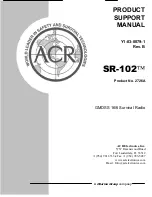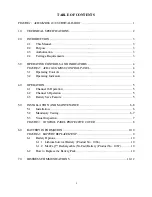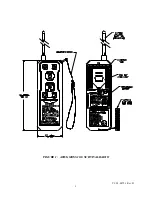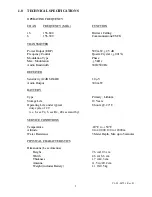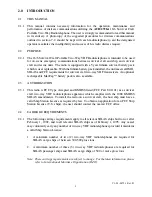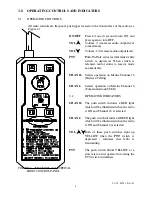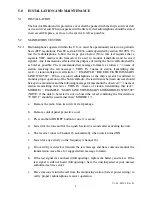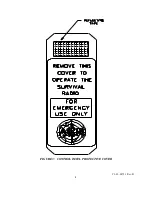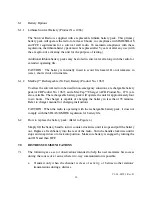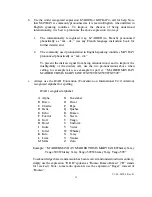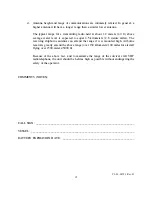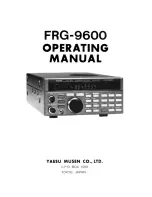
Y1-03-0079-1 Rev. B
11
b. Use the world recognized expression
M'AIDER
or
MAYDAY
to call for help. Note
that MAYDAY is commonly pronounced as it is read in English, when utilized in
English speaking countries. To improve the chances of being understood
internationally, it is best to pronounce the above expression two ways:
1. The
internationally recognized way,
M'AIDER
(in French) pronounced
phonetically as “m
ě
- d
ě
,” (see any French language instruction book for
further details) and,
2. The commonly used pronunciation in English speaking countries MAYDAY
pronounced phonetically as “m
ā
- d
ā
.”
To prevent the distress signal from being misunderstood, and to improve the
intelligibility of the distress call, use the two pronunciations above when
calling, for example (also, see example for part c): “M’AIDER MAYDAY
M’AIDER THIS IS MARY JANE WXT599 WXT599 WXT599”.
c. Always use the ICAO Convention (Convention on International Civil Aviation)
recognized alphabet for spelling.
ICAO recognized alphabet:
A Alpha
N November
B Bravo
O Oscar
C Charlie
P Papa
D Delta
Q Quebec
E Echo
R Romeo
F Foxtrot
S Sierra
G Golf
T Tango
H Hotel
U Uniform
I India
V Victor
J Juliet
W Whiskey
K Kilo
X X-ray
L Lima
Y Yankee
M Mike
Z Zulu
Example: “M’AIDER MAYDAY M’AIDER THIS IS MARY JANE Whiskey X-ray
Tango 599 Whiskey X-ray Tango 599 Whiskey X-ray Tango 599”
To acknowledge that a transmission has been received and understood in its entirety,
simply use the expression “R R R” spoken as “Romeo Romeo Romeo” (“R” stands
for received). Note: some radio operators use the expression “Roger” instead of
“Romeo”.

